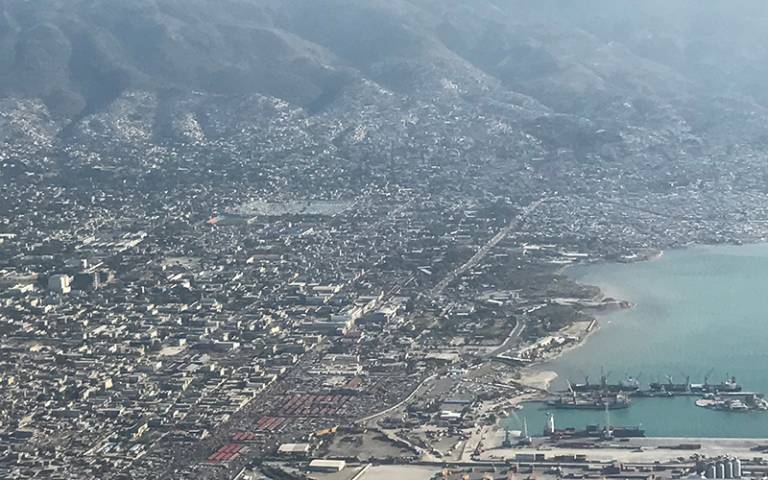DPU PhD student successfully defends thesis on urban design for reconstruction in Port-au-Prince
27 June 2022
Congratulations to Rachel Valbrun who has successfully defend her thesis that in Port-au-Prince, the disregard for underlying limitations of land access has encouraged built environment design interventions that perpetuate vulnerability.

Rachel Valbrun's thesis, titled 'Land, disasters, and built environment professionals: Examining urban design for reconstruction in Centre-Ville, Port-au-Prince', explores the interrelations between land tenure, vulnerability, and post-disaster reconstruction and interrogates how built-environment professionals influence them. The occurrence of disasters results from social processes that expose populations to hazardous events. Societies’ claims to access, occupy, and own land are processes that influence vulnerability and ultimately influence the impact of disasters. In Haiti, customs that trace back to colonialism inform relationships with land. However, in the attempt to rebuild Port-au-Prince after the 2010 earthquake, recovery efforts demonstrated limited understanding about how processes to access, occupy, and own land evolved and how land tenure influenced the susceptibility of human livelihoods and physical space to disaster.
She aims to understand how land tenure, and the vulnerability it creates, influenced post-disaster reconstruction in Port-au-Prince, Haiti. By focusing on urban design proposals to rebuild Centre-ville, the historic district of Port-au-Prince, her research studies the role of built-environment professionals in disaster recovery and how they engaged with rebuilding the city after the disaster. Through interviews, analysis of historical records, and review of design proposals, her thesis draws on social vulnerability theory to explain the influence of land tenure on rebuilding the built environment.
Her research findings reveal how a history of parallel statutory and customary land tenure systems contributed to vulnerability and disaster risk. The overlapping land tenure systems and associated human exposure rarely guaranteed secure land ownership claims in Port-au-Prince. In the aftermath of the earthquake, insecure land tenure disabled the implementation of urban design proposals for recovery. Land tenure transformed the role of built-environment professionals and impeded their ability to inform reconstruction in Centre-ville.
 Close
Close

